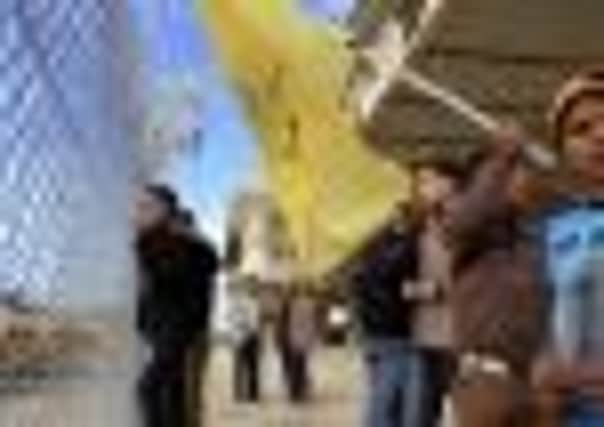Book review: A Month by the Sea: Encounters in Gaza


A Month by the Sea: Encounters in Gaza by Dervla Murphy
Eland, 250pp, £16.99
While other travel writers may choose to play it for laughs, or indulge in protracted florid passages of description, Murphy, defiant, now in her eighties – whilst certainly capable of sensory re-imagining of landscape – like all great travel writers moves behind the scenery, attempting (and mostly managing) to penetrate the lives, beliefs and cultures of those she encounters.
Her humour is tersely understated, injected with irony. You sample it here in the title, A Month by the Sea, which disguises a far from picture-postcard account of the writer’s latest foray into risk, with nothing remotely resembling a deck-chair to be seen – although admittedly there are beaches (one long string of beach, to be accurate) pocked and rubble strewn, beneath an astringent sky, which has weathered more than its fair share of rocket-propelled explosives, fired with intent in both directions, but mostly from Israel into Gaza.
Advertisement
Hide AdThe book’s subtitle sets us straight. “Encounters in Gaza” perfectly summarises what follows as Murphy restlessly spends four weeks in the summer of 2011 questioning young and old, politicians and academics, the dispossessed, and those much wealthier, all strands of Gazan opinion from the dejected to the optimists and the pragmatists. She offers up their words of fear or despair, defiance or longing about a solution to the impasse which Gaza’s people are now locked in with the government of Israel.
The Gaza Strip has a population of 1.6 million. Intermittently they find themselves in the spotlight of world attention when destruction and disaster pay a visit. To spend any time there is a high-risk occupation. Murphy has courted hazards for decades, having at times had to use a gun (in Azerbaijan and also Bulgaria) to defend herself in earnest.
Though she carries no weapon here, she clearly wears her imperviousness to danger with such aplomb that her demeanour must have struck the war-toughened Gazan, and made them more willing to share the truths of their condition with this sympathetic outsider.
Murphy’s account has a linear logic that gives it cohesion, describing events as they unfold within an atmosphere that is charged and perpetually wary: “Gaza truly is a prison, not metaphorically, but in reality.” She starts with the tortuous business of crossing from Egypt into the Strip, and concludes a month later with the protracted aggravation of trying to exit, meeting the tangled barbed wire of Palestinian bureaucracy, a skein of obfuscation and obstruction almost impenetrably perverse.
In the weeks in between she is met overwhelmingly with kindness, viewed, she writes, as “an object of interest, a stranger to be offered help and hospitality”. The family with whom she lodges becomes her nucleus of insight into the everyday deprivations and stoical decencies of ordinary people. The boundaries of the Strip are everywhere evident – from the guard towers sealing the border, under the gaze of suspicious Israelis, to the perimeter of beach, 23 miles long, blockaded intensively round the clock.
Throughout the unfolding of Murphy’s story runs a distinction between Zionists and Jews. Her criticism of Israel denotes a clear condemnation of Zionism. Her Palestinian acquaintances tend to concur with this distinction, condemning anti-Semitic sentiments, the eldest amongst them remembering the mid-20th century genesis of their woes.
Advertisement
Hide AdIn a brilliant single paragraph, in an encounter with Dr al-Zahar, the Palestinian first foreign minister, Murphy’s description – of “facts so obvious and accessible and crucially important, too often fudged in the mainstream media” – explains simply the key events in the messy unfolding of recent history. This exemplifies Murphy’s ability to grasp the salient points behind the cri de coeur of one of her interviewees: “Our tragedy is not a food shortage but a freedom shortage.”
This notwithstanding, with typical deftness, she also illustrates the stark crisis of a repeatedly ravaged landscape and ravaged people, the shortage of everything but opinions, her own not least. A Month by the Sea is a restless antidote to the easy road of indifference, as fractious as the atmosphere of the country it brings to life, a fist-clenched polemic, an octogenarian waving magnificently, not drowning.